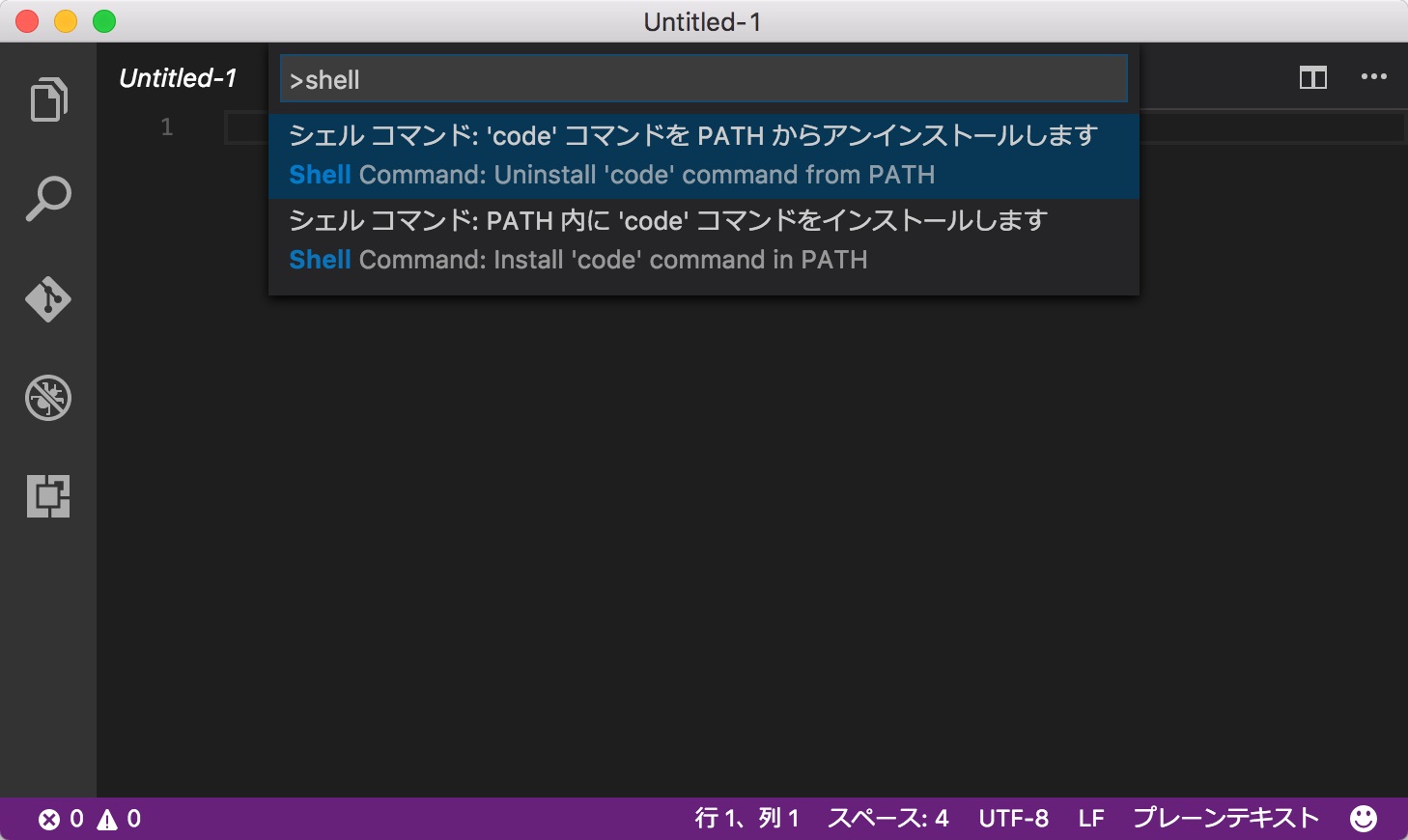ɸ minute read.
Homebrew’s package index. Already have brew, then go $ brew cask install visual-studio-code If doesn't have brew before. Tagged with note, brew, vscode.
Which are best open-source Vscode projects in Shell? This list will help you: vscodium, nb, vscode-dev-containers, dotfiles, addon-vscode, code-server, and code-connect. Go ahead and restart VSCode to apply the changes. Install Azure Functions Core Tools Next, we install the OS-specific Azure Functions core tools globally to enable local debugging. On macOS, install using Homebrew: $ brew tap azure/functions $ brew install azure-functions-core-tools. On Windows, install using npm. Brew install go. Also a bunch of dev tools! Org / x / tools / cmd / godoc. Com / golang / lint / golint. This site is super fast?! It’s hosted with Kinsta on Google servers → 👨💻 Interested in learning tips/tricks of VSCode, I am launching a course → VSCode FTW!#.
I’ve started using Vim in 2014. I’ve read a few books, wrote a few articles and gave a few talks on Vim. I really like editing text with Vim, but I was never happy with it’s file management, extensions, things like that.
Terraria for mac steam. I’ve noticed that Visual Studio Code (VSCode) is used by slightly more than 50% of developers that participated in 2019 Stack Overflow survey. (I didn’t find editors section in 2020 survey.)
I’ve learned about Neovim in Modern Vim book. (I never wrote the book review.) I’ve started using Neovim in 2018 after I’ve started reading the book.
I’ve noticed more and more people using VSCode so I gave it a try earlier this year. The only record I have is a commit in my dotfiles from a few days ago, but I know I’ve been using it for a few months. I liked VSCode in general. Fruity loops 11 for mac. It has all the features I need and a lot of extensions. But, after using Vim, editing text using anything else feels like walking backwards. (Editing text using Vim feels like running. Forwards.)

vscode-neovim VSCode extension was all I needed to connect the two. A real Vim implementation (not an emulator!) inside VSCode.
You need three things. VSCode, Neovim and vscode-neovim.
Installing VSCode is simple, download the installer from the site.
Brew Vscode Path
Installing Neovim should also be simple. I’ve installed it on a Mac using Homebrew and all I needed to do was:
--HEAD part is important. It will install version 0.5. If you don’t use --HEAD you will get version 0.4. vscode-neovim needs version 0.5.
vscode-neovim is installed from VSCode Extensions. Search for Neo Vim by Alexey Svetliakov.
Links
- Visual Studio Code at visualstudio.com
- Neovim at neovim.io
- vscode-neovim at github.com

tldr; install brew; brew install python
Build Vscode From Source
Homebrew is a great installer for Mac and its main job is to make it easier to install packages.

Step 1: Download Homebrew here
'brew' hosts its package information here as “formulae“.

Brew Vscode M1
Step 2: Use brew to install the latest version of Python
$ brew install python --verbose
Mac for sound. Now you can run python3 in your terminal
> python3
Homebrew Cask
More details: So what happens when I run brew install?
Homebrew Visual Studio Code
When you run the command, brew will look for the package in the “formulae” list and run the installation script for the package.
Brew installs *all* packages into its own directory on your computer at /usr/local/Cellar .
Brew Vscode Insiders
Take a look with $ ls /usr/local/Cellar.

Brew Vscode
After installation, brew creates a symlink which is basically a shortcut that will allow your system to run the new command > python3.
